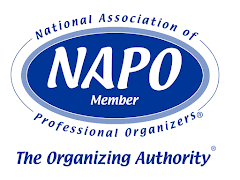Are there too many things on your "TO DO" list? Do you have things listed in priority order? Is anything actually getting done?
Life can be a challenge. Most people have too many things that they want to do or get done - yet they can't seem to get ahead of their list. If they have a list, that is.
It's easy to get overwhelmed and stressed out by the number of things that we expect of ourselves. A lot of this is of our own making. We try to squeeze too many things into our day and then get upset with ourselves when we don't accomplish everything.
The problem is not that we aren't accomplishing everything - it's that we don't have a system in place - that works for us. Everyone is different - there is no "one size fits all".
Managing your time includes managing your expectations. Start by making a list of all the things that you want or need (or think you need) to get done. This is your master list.
You then need to decide on what is a priority and number them accordingly. This takes some decision making. Then step back and be realistic about your priorities. Maybe you might want to renumber your list. What seems like a priority now might not be a priority after you have looked at your entire list and thought about it for a while.
Next, you will want to break down your list into tasks. These tasks should be things that can be accomplished in a short period of time. They are not "projects" - but short tasks - such as deciding on the color for the office that you are going to repaint (project).
It would look something like this:
Project: Paint office
Tasks:
- Decide on a day to paint and schedule it on your calendar
- Decide on a color
- Go to the store to pick up paint
- Pick up brushes at the store
- Pick up paint sticks at the store
- Pick up a drop cloth at the store
- Paint the room
- Clean up the room of all material (drop cloth, paint cans...)
This is just one example of breaking down your projects into manageable tasks.
By putting everything down on your list - you won't have to remember everything and you won't stress yourself out by forgetting something. Plan ahead and plan everything out.
Scheduling your time, making lists, breaking down your priorities into actionable events is critical in reducing your stress.
It is also important not to over schedule yourself. By putting everything on your calendar (either paper or electronic) - it helps you to see everything that you are actually doing. It's a reality check.
Once it's on paper - and you have a "visual" - it's easier to step make and make some decisions on your "priorities". Be realistic about the time and more importantly - the energy - that you really have for all of your commitments.
It's easy to get lost in your commitments and to forget the most important thing - your family and yourself. Schedule time for your family and yourself on your calendar. If you don't - no one will.
Better time management results in helping to reduce your stress!
Have a great and productive - but not over scheduled week!
Less Clutter = Less Stress SM in your home, your business and your life
Organizational Consulting Services
http://www.organizationalconsultingservices.com




